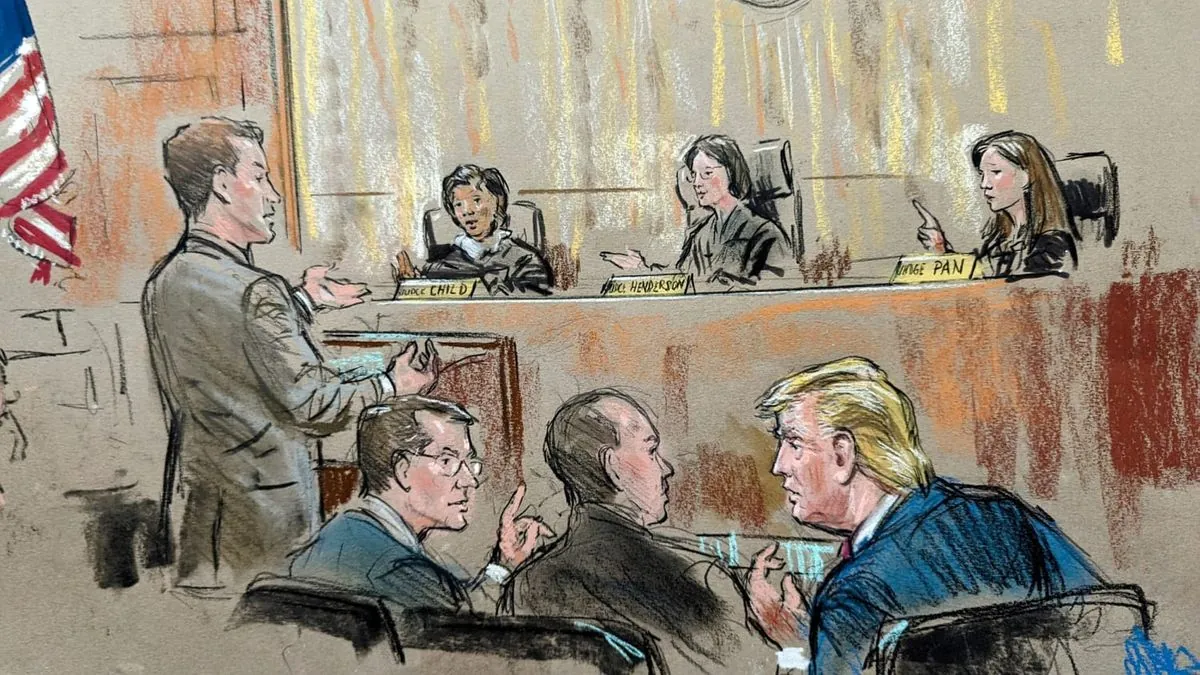On Tuesday, September 24, 2024, a panel of federal judges convened to hear arguments in a case that could significantly alter mail ballot counting rules across the United States. The focus of the hearing was a Mississippi law permitting the counting of mail ballots received up to five days after Election Day, provided they are postmarked by Election Day or earlier.
This case is part of a broader Republican effort to challenge mail voting laws in various states. While Mississippi is not expected to influence the presidential election outcome, the ruling could have far-reaching implications for other states' mail ballot procedures.
The lawsuit, initiated by the Republican National Committee in January 2024, argues that elections must conclude on Election Day, as mandated by Congress. However, a district court upheld Mississippi's law in July 2024, stating that Congress has not regulated mail ballots and has left states with the authority to establish their own voting boundaries.
The case highlights the complex history of voting in the United States. Mail-in voting dates back to the Civil War in the 1860s, demonstrating its long-standing role in American democracy. The US Constitution grants states primary authority over election administration, which has led to varying practices across the country.
Currently, 17 other states and Washington, D.C. have laws similar to Mississippi's, allowing postmarked mail ballots to be counted after Election Day. This includes swing states like Nevada, as well as both Democratic and Republican strongholds.
The arguments presented in court touched on various aspects of election law and practice. T. Russell Nobile, representing the Libertarian Party of Mississippi, argued that an election occurs when a voter expresses their choice by a given time, which should be on or before Election Day. Conversely, Donald Verrilli Jr., representing the Democratic National Committee, drew a parallel with tax filing deadlines, where postmarks determine timeliness.
This case is not isolated. In Pennsylvania, a crucial battleground state, the Republican National Committee has filed lawsuits challenging voters' ability to correct errors on mail ballots and seeking to disqualify ballots with undated or misdated outer envelopes.
The ongoing debate over mail voting reflects broader issues in US election administration. The Help America Vote Act of 2002 aimed to improve voting systems and voter access, while the Voting Rights Act of 1965 prohibits racial discrimination in voting. However, the US lacks a federal election commission to oversee all aspects of elections nationwide, leading to varied practices and ongoing legal challenges.
As the November 5, 2024 Election Day approaches, the outcome of this case could have significant implications for the presidential race and closely contested congressional seats. The ruling by the 5th Circuit Court of Appeals, which has jurisdiction over Mississippi, Louisiana, and Texas, will be binding in these states and could potentially influence mail ballot laws nationwide.
"The idea that widely-supported election integrity safeguards somehow constitute 'voter-suppression' is a far-left conspiracy theory."
This case underscores the ongoing tension between efforts to ensure election integrity and concerns about voter suppression. As mail-in voting continues to play a crucial role in US elections, with the US Postal Service handling millions of mail-in ballots each election cycle, the resolution of this case may shape the future of American democracy.
